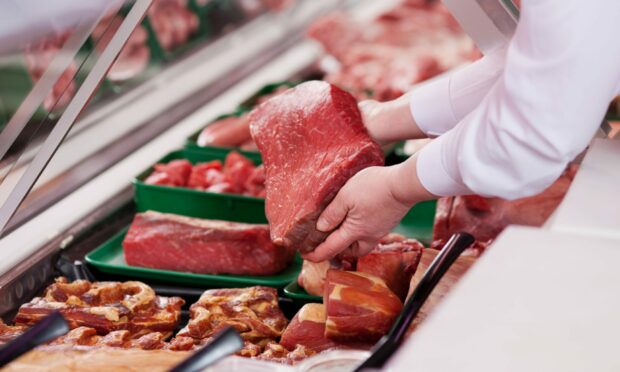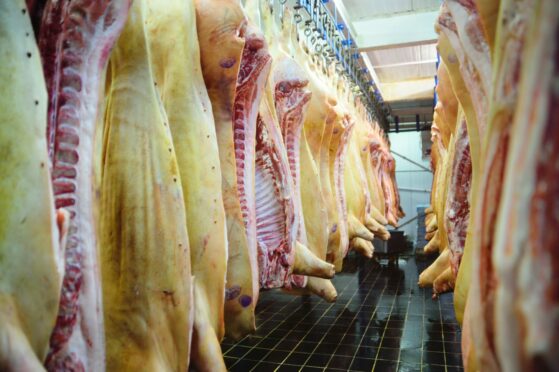The war in Ukraine could create even more disruption in the red meat supply chain than that caused by the pandemic, according to an industry economist.
Iain Macdonald, of Quality Meat Scotland (QMS), states in his latest market commentary that while pig producers are most exposed to rising global grain markets, cattle finishers are also vulnerable to rising feed costs.
He said: “Based on QMS enterprise profitability data, to offset a 50% rise in feed costs, cereal-based finishers would need a 42p/kg lift in the price paid for a 382kg deadweight -U3 grade young bull, before considering other input cost increases. Higher fuel and energy prices will be pushing up the operating costs of processing sites, along with the cost of transport and distribution.
“There is also a general economic impact as the further spike in oil, gas and food prices filters through into higher prices for goods and services.”
Mr Macdonald says consumer confidence has weakened, and data shows price inflation for beef and lamb has tested the loyalty of consumers, which could lead to trading down for cheaper cuts, impacting on carcase balance.
Turning to pig meat, he points out the European Union is a net exporter to Ukraine and while trade will have halted, the EU population has risen by 0.4% in two weeks, with increases of 2.2% in Slovakia, 3% in Slovakia and 3.7% in Poland.
He said: “This will have had some impact on overall meat supply and demand, and the products required, in these countries.”
It is possible that this has influenced the EU pork market, with week ahead farmgate prices rising 30-35p/kg in Germany over the past fortnight.
Mr Macdonald observes that rising cattle and pig prices in the EU suggest that there will be few cheap alternatives from the EU, helping to support prices in the domestic supply chain.
He concludes: “If the essential role played by farmers and the food production chain had not already been demonstrated during the pandemic, it will become much more important to policymakers and consumers alike as a result of the current crisis.”

